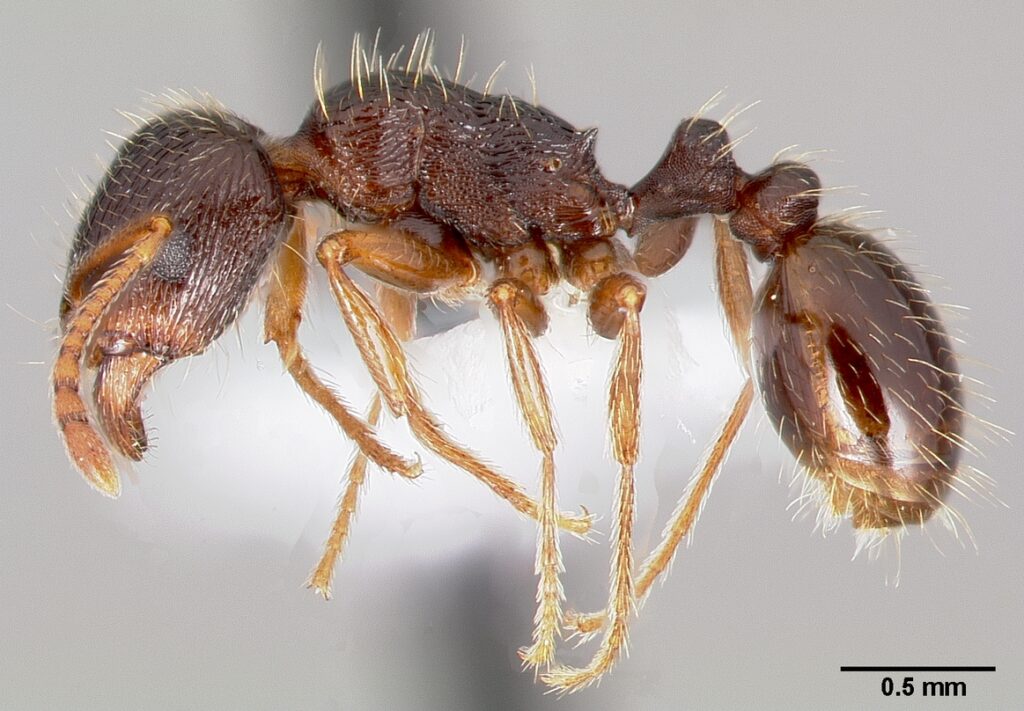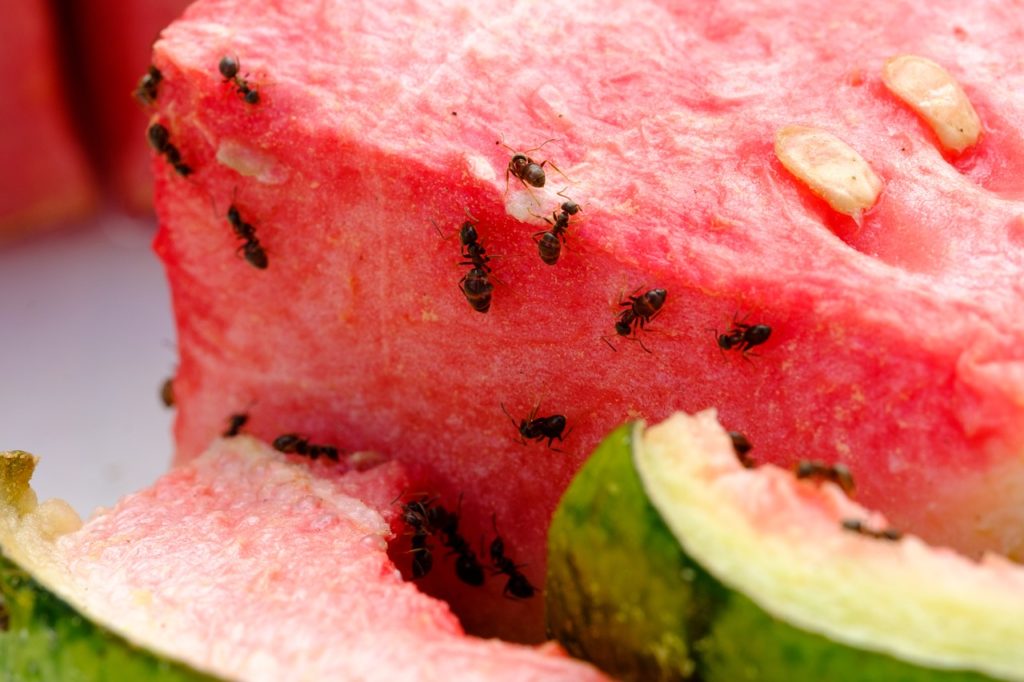Ants are probably not the first animals that spring to mind when you think about winter pests. But contrary to popular belief, ants can survive in the colder winter months. Many ant species hibernate, but many adjust their habits and surroundings to cope with the cold weather. Here is everything you need to know about getting rid of ants in the winter.
Why do you have ants in the winter?
- Ants are looking for a place to warm themselves. When ants feel the cold season approaching, they build nests in warmer areas like inside concrete slabs and under leaves and rocks. Your home is a cozy place. It has a lot of corners, cracks, and holes where ants can build a nest and thrive.
- Food is readily available in your home. Ants have a more diverse diet than you think. They can eat protein-rich and fatty foods like eggs, meat, and even insects. They can also eat fungi. Some even build fungus gardens. The point is, there are more ant-attracting food items in your home than you realize. If these food items are always exposed, you are at an increased risk of suffering from an ant infestation in the winter.
- Certain kinds of ants thrive better in winter. When temperatures drop, so do the body temperatures of ants. They go into hibernation during the colder months. In this state, ants become more sluggish. They also burrow deeper into the ground and stay together to share body heat. This is the reason why you don’t see a lot of ants during winter. But there are exceptions. Some ants, especially those that don’t always hibernate when it’s cold, can thrive through the winter. Some of these ant species include carpenter ants, odorous house ants, and pavement ants.

How to get rid of ants in the winter
- Try natural remedies. Ant baits and pesticides can be used rid of your ant problem at home. But many homeowners prefer not to use them because they can be dangerous. Ant baits and pesticides have ingredients that can harm not just the ants, but also the inhabitants of your home and let’s not forget the environment. Because of these potential risks, many homeowners are opting for more natural remedies for their ant infestation. Some use essential oils, lemon, or vinegar. Some even combine lemon and vinegar to create a more potent solution. Essential oils are a natural way to get rid of ants and cinnamon can also be an effective way of getting rid of ants.
- Use ant baits. Because ants want to keep themselves warm during the winter, they are more likely to be deep within their colonies. They can be hard to get rid of simply because you can’t access them easily. Thankfully, ant baits are specifically designed to infiltrate ant colonies. When ants get the baits, they bring the toxic substances back to their colonies, where they are then eaten by their fellow ants. You can buy commercial ant baits, but you can also make some yourself with boric acid and powdered sugar.
- Insecticides. Insecticides can be used to get rid of ants but when buying insecticides, make sure it is clearly indicated on the label that they can be used for ants. Also, remember that they have toxic ingredients. Follow their instructions diligently to ensure their effectiveness and safety.
- Call pest control professionals. Whether it is the cold or hot season, ants can be hard to get rid of once they have established themselves inside your home. This is because there are so many spots where they can thrive, not to mention that they can burrow deep into their nest and make themselves inaccessible. If you think your ant problem is already beyond you, you can always hire pest control professionals.

Prevention is better than cure
- Be on the lookout for foragers and scouts. Even if you get rid of ants in the winter, your effort can be meaningless. A new batch can just crawl straight into your home and start another infestation. Look for foragers and scouts. These are rogue ants looking for food for their colonies. You will often find them in bathrooms and kitchens because those are the areas of your home with lots of food. Kill these rogues before they can invite their fellow ants into your home.
- Keep your home clean. No matter how clean your home is, there is always something to eat for ants. Even just the moisture in your bathroom can already attract ants. That being said, you are also not giving yourself any chances of an ant-free home if food is just easily accessible. Clean up after eating, so you are sure there are no crumbs and spills that can attract scouts. Throw away clutter as well to prevent them from housing various pests, not just ants.
- Make your home inaccessible. Different ant species have different sizes. But generally speaking, the average ant is just about 3.7 millimeters long. This is bad news for you because it means they can get inside your home even through the smallest of passageways. To prevent them from getting inside, use weatherstrips on the gaps between your doors and windows. You can also install screens as an added layer of protection. After all, ants don’t need to go through your windows. They can thrive in the windows themselves. Also, use cement, caulk, or whatever appropriate sealant you need to close cracks and holes on your walls.
Ants are unexpected winter pests
Just like you and mammal pests like rats and squirrels, ants look for protection against the elements. This is especially true during the colder months of the year. Many ant species simply hibernate, but some ants like pavement ants thrive better in winters, so be on the lookout for these specific types of ants.
Luckily, there are a lot of ways to effectively get rid of ants in the winter. They involve the use of commercial products, mainly ant baits and insecticides. You can also just call pest control professionals if you want to save yourself the hassle.

